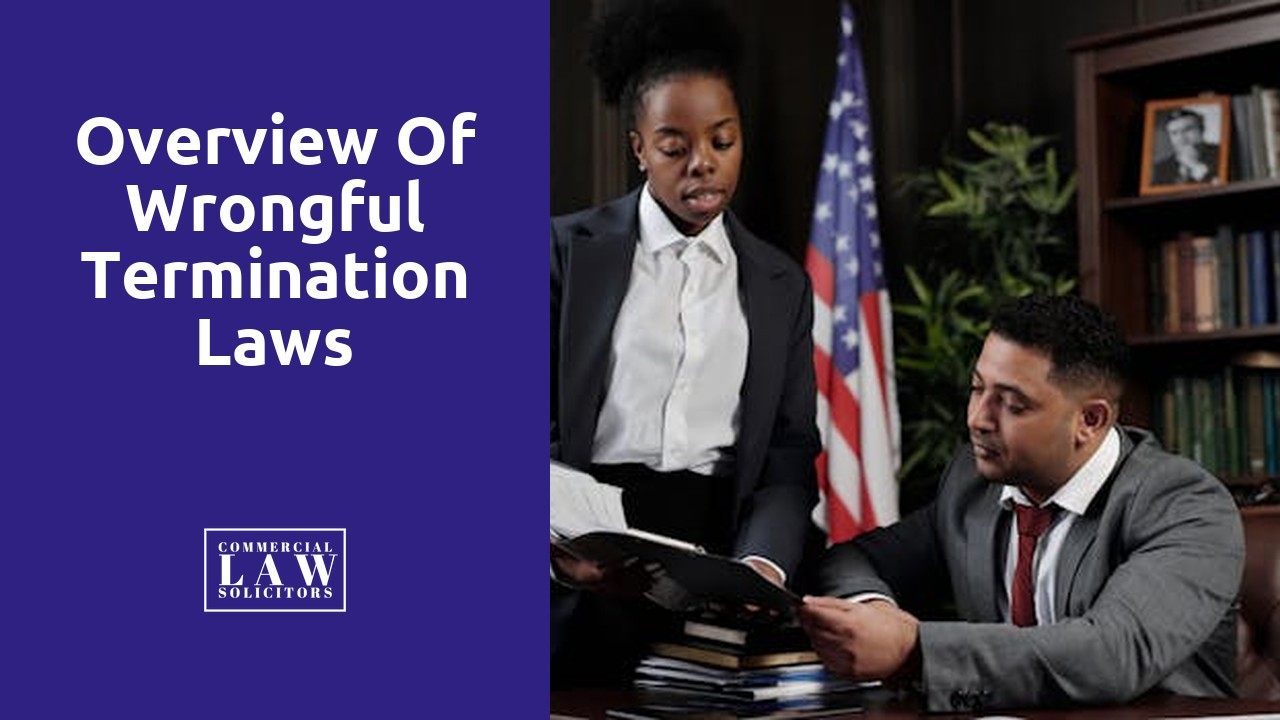Overview of Wrongful Termination Laws

Understanding Employee Rights in Termination Cases
Employee rights in termination cases are a critical area of concern for both employers and employees. It is essential for individuals to be aware of their rights and protections when facing the prospect of being dismissed from their job. In many cases, the law provides safeguards to ensure that employees are treated fairly and justly during the termination process.
One fundamental right that employees have in termination cases is the right to due process. This means that employers must follow certain procedures when terminating an employee, such as providing notice, conducting an investigation if necessary, and giving the employee an opportunity to respond to any allegations. Employees also have the right to be treated fairly and without discrimination during the termination process, regardless of their race, gender, age, or any other protected characteristic. Understanding these rights can empower employees to assert themselves and seek redress if they have been wrongfully terminated.
Navigating the Legal Landscape of Unjust Dismissals
Unjust dismissals are a challenging and often devastating experience for employees. When faced with such a situation, it is crucial to have a clear understanding of your rights and the legal avenues available to you. Navigating the legal landscape in cases of unjust dismissals can be complex and overwhelming, but with the right approach, you can protect your interests and seek recourse for the injustice you have faced.
First and foremost, it is important to familiarize yourself with employment laws and regulations in your jurisdiction. These laws vary from country to country and even within different states or provinces, so it is essential to know the specific laws that apply to your case. Understanding your rights as an employee and the obligations of your employer will provide you with a foundation to build upon when navigating the legal process. Additionally, consulting with an experienced employment lawyer can help you interpret and apply these laws to your specific circumstances.
Protecting Your Career: A Closer Look at Wrongful Termination
When it comes to protecting your career, understanding the intricacies of wrongful termination is essential. Wrongful termination refers to an illegal act by an employer, where they unjustly terminate an employee's contract without valid reasons or in violation of employment laws. This can have a significant impact on your livelihood and overall professional reputation.
One crucial aspect to consider when faced with wrongful termination is the existence of employment contracts or agreements. If you have a written contract that outlines the terms and conditions of your employment, it becomes easier to establish if your termination was indeed wrongful. These contracts often specify grounds for termination and provide protection against unwarranted dismissal. However, even without a written contract, employees are still protected by employment laws that enforce fair treatment and prohibit discriminatory practices. It is important to familiarize yourself with these laws in your jurisdiction to determine if you have legal recourse in case of wrongful termination.
Exploring Legal Remedies for Unfair Job Terminations
Employees who believe they have been unfairly terminated from their jobs may feel a sense of confusion and helplessness. However, it is important for individuals facing this situation to understand that there are legal remedies available to protect their rights. By seeking the guidance of an experienced employment attorney, individuals can explore different options to address the unfairness they have experienced.
One possible legal remedy is to file a wrongful termination lawsuit. This involves alleging that the termination was unlawful and seeking compensation for any damages incurred as a result. Various factors may contribute to a termination being considered wrongful, such as discrimination based on protected characteristics, retaliation for whistleblowing, or a breach of employment contract terms. Through a lawsuit, employees may be able to hold their employer accountable and obtain financial relief for the harm they have suffered.
Unveiling the Dark Side of Employment: Wrongful Dismissals
Unveiling the Dark Side of Employment: Wrongful Dismissals
Wrongful dismissals are a prevalent issue in the world of employment, shedding light on the darker aspects of this otherwise vital aspect of our lives. It is disheartening to think that individuals can be unjustly stripped of their livelihoods, often without any legitimate reason or fair warning. The repercussions of such dismissals are far-reaching, affecting not only the terminated employee but also their families and communities.
The complexity of wrongful termination cases lies in their intricate web of legal intricacies. Navigating through the legal landscape can be daunting, as employees are often pitted against powerful employers with deep pockets. Nevertheless, it is crucial to understand and assert your rights to protect your career and seek justice for any unfair job terminations. Employers must be held accountable for their actions, ensuring that no one falls victim to the dark side of employment.
Unraveling the Complexities of Wrongful Termination Cases
When it comes to navigating the complex world of wrongful termination cases, it is crucial to have a clear understanding of employee rights. In today's competitive job market, knowing the legal landscape surrounding unjust dismissals can protect your career and provide you with the necessary tools to seek justice if you believe you have been wrongfully terminated.
Wrongful termination occurs when an employee is fired in violation of their legal rights. This can include being terminated for discriminatory reasons such as race, gender, or disability, or being fired in retaliation for whistleblowing or exercising protected rights. Understanding the nuances of wrongful termination cases can be challenging, as they involve complex legal statutes and regulations. However, by having a basic understanding of the legal remedies available, employees can arm themselves with the knowledge necessary to fight for their rights and seek fair compensation for the harm they have suffered.
Related Links
Common Types of Wrongful Termination ClaimsSteps to File a Wrongful Termination Lawsuit
Wrongful Termination and Whistleblowing
Wrongful Termination and Retaliation